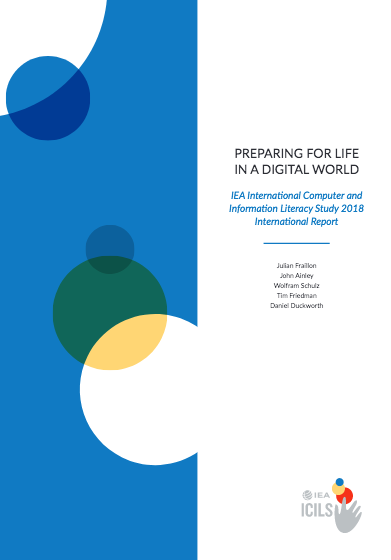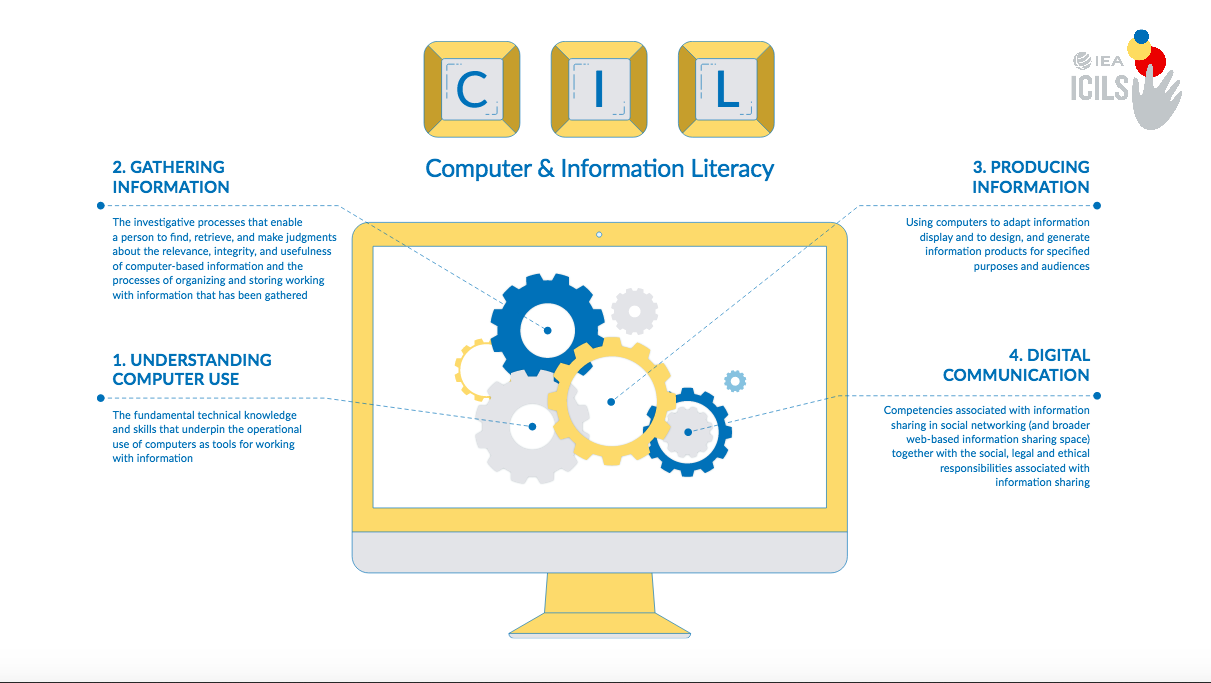
The latest cycle of ICILS reveals that over 40% of students have only minimal ability to critically assess information found online
by Pisana Ferrari – cApStAn Ambassador to the Global Village
Contrary to common assumption young people do not necessarily develop sophisticated digital skills just by growing up using digital devices: 18% of students who took part in the latest cycle of the International Computer and Information Literacy Study (ICILS) failed to reach even the lowest level of the computer and information literacy (CIL) scale, and 25% of students scored the lowest level. The study also revealed that it is not enough to provide students or teachers with information and communication technology (ICT) to improve their digital skills. Students also need to be taught how to use ICT effectively and teachers need to be supported in their use of ICT in teaching. ICILS 2018 involved 46.000 grade 8 students and 26.000 teachers from 200 schools, in fourteen countries, across Europe, Asia and North America. The study was designed to address the critical question of how well students are prepared for study, work, and life in a digital world. The type of literacy analysed refers to “students’ ability to use computers to investigate, create, and communicate in order to participate effectively at home, at school, in the workplace, and in the community”. Aspects of student background were also associated with CIL. Students from higher socioeconomic backgrounds (measured by parental occupation, parental education and number of books in the home) had significantly higher CIL scores.
Studies conducted by the IEA are essential to understand and compare education ecosystems across the world and gather meaningful information for policy makers and education stakeholders. At cApStAn Linguistic Quality Control we are proud to have been asked to verify the translations – with a view to maximizing comparability across language versions – of the ICILS data collection instruments. cApStAn operates as an independent linguistic quality control agency: we maximise multinational/multicultural/multilingual (3MC) equivalence, and document the translation verification history of each segment, in each language (see the video explaining the verification process at the link below). We have had the privilege of working with IEA for 19 years now, including on other flagship projects such asTIMSS, Trends in International Mathematics and Science Study and PIRLS, Progress in International Reading Literacy Study.

Read more
Click here for cApStAn’s linguistic quality control procedures
cApStAn explainer video: https://www.youtube.com/watch?v=1X1DlfIYvnw
ICILS 2018 press release, November 5, 2019: https://www.iea.nl/sites/default/files/2019-11/ICILS%20Results%20Press%20Release.pdf
ICILS full report, “Preparing for life in a digital world”: https://www.iea.nl/sites/default/files/2019-11/ICILS%202019%20Digital%20final%2004112019.pdf
Photo credits: Cover of ICILS 2018 report on “Preparing for life in a digital world”
ICILS infographics @ https://www.iea.nl/sites/default/files/2019-11/ICILS%202019%20Digital%20final%2004112019.pdf